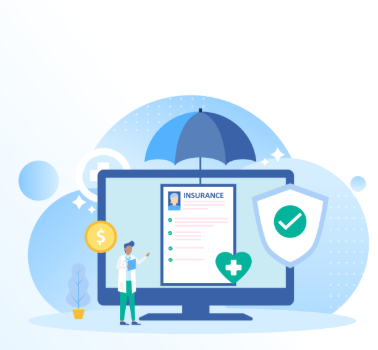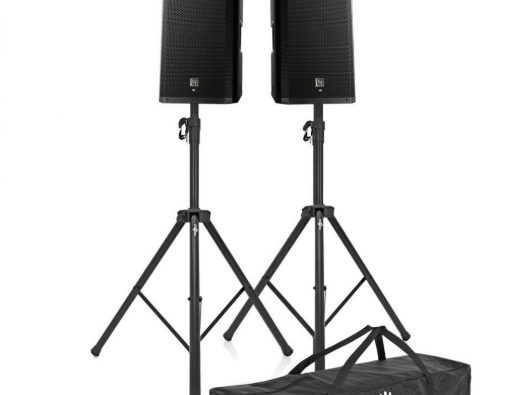
When it comes to storing sensitive healthcare data in the cloud, compliance with HIPAA (Health Insurance Portability and Accountability Act) is non-negotiable. Ensuring that patient data is securely stored and processed is crucial to protecting your business, maintaining patient trust, and avoiding costly penalties. Here’s a look at the four essential requirements for HIPAA-compliant cloud storage.
1. Data Encryption
Data encryption is the first line of defense against unauthorized access to sensitive patient information. To meet HIPAA requirements, all data—both at rest and in transit—must be encrypted using strong encryption methods.
- End-to-End Encryption: This ensures data is protected from the moment it leaves the sender until it reaches the intended recipient. No one in between, including hackers, should be able to access the data without proper decryption keys.
- Encryption for Stored Data: For data that is not actively being transferred, it must be stored using encryption algorithms like AES 256-bit, which is considered one of the most secure.
- Encryption During Transfers: When moving data over a network, HIPAA requires the use of Transport Layer Security (TLS) to ensure it remains protected during transmission.
Proper key management is also crucial. You should regularly rotate encryption keys and store them securely, separate from the data they protect, to prevent potential security breaches.
2. Access Control
It’s not enough to just encrypt your data—access to that data needs to be tightly controlled. HIPAA-compliant cloud storage requires robust access controls to ensure that only authorized personnel can access protected health information (PHI).
- Multi-Factor Authentication (MFA): This method requires users to authenticate using at least two factors—something they know (password), something they have (security token or mobile device), or something they are (biometrics like fingerprints or facial recognition).
- Role-Based Access Control (RBAC): Not all employees should have access to the same data. By assigning access rights based on job roles, you can limit access to only the data necessary for each individual’s role. For example, a nurse might need access to patient records but not billing information.
- Audit Logs: HIPAA mandates that you keep detailed logs of who accesses PHI and why. These logs must be stored for at least six years and regularly reviewed to detect any unauthorized access.
3. Business Associate Agreements (BAAs)
When you work with third-party cloud service providers (CSPs) to store or process healthcare data, you must ensure they comply with HIPAA as well. This is where Business Associate Agreements (BAAs) come into play.
- Why BAAs Matter: A BAA is a legally binding contract between you and your CSP that ensures both parties understand their roles and responsibilities in protecting PHI. It outlines security measures, breach notification procedures, and other compliance requirements.
- Key Elements of a BAA:
- PHI Use: Defines how the CSP is allowed to use and process your data.
- Security Requirements: Details the specific safeguards the CSP must implement.
- Breach Reporting: Specifies the process for notifying you in the event of a breach.
- Data Handling After Termination: Describes how PHI will be handled when the agreement ends.
Failure to have a BAA in place could result in severe penalties and liability in the event of a data breach. It’s also essential to ensure that any vendors or partners involved in your cloud storage also sign a BAA.
4. Regular Setup, Maintenance, and Compliance Reviews
Compliance with HIPAA is not a one-time effort—it requires ongoing maintenance and regular audits. Proper setup, continual monitoring, and employee training are essential components of a robust HIPAA compliance strategy.
- Regular Security and Compliance Checks: These include routine risk assessments, vulnerability scans, and updates to security protocols to ensure that your cloud storage solution remains compliant as new threats or regulations emerge.
- Staff Training: Your team is on the front lines of data security. Regular training sessions are essential to ensure that employees understand HIPAA requirements and can recognize potential threats like phishing attacks or data leaks.
- Updates and Audits: HIPAA regulations are constantly evolving. It’s important to review your internal policies and contracts with cloud providers regularly to ensure continued compliance.
Conclusion
HIPAA-compliant cloud storage is a critical element for healthcare providers and businesses in the healthcare industry. By ensuring that your data is encrypted, access is controlled, business agreements are solid, and your systems are regularly maintained, you can protect sensitive patient data while avoiding costly fines and reputational damage. As cloud storage for healthcare continues to grow, getting these four core requirements right will ensure your organization stays secure, compliant, and trusted by your patients.












